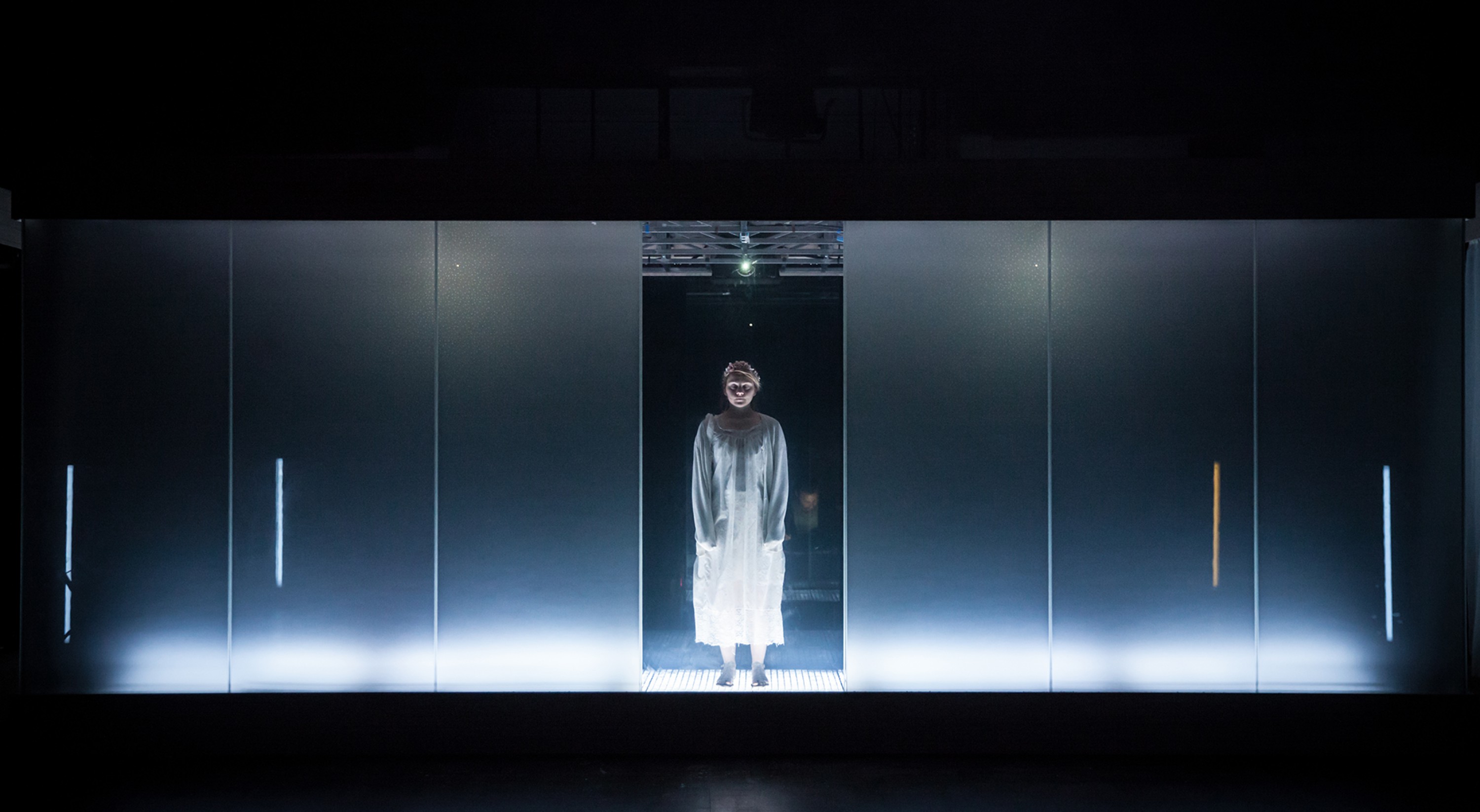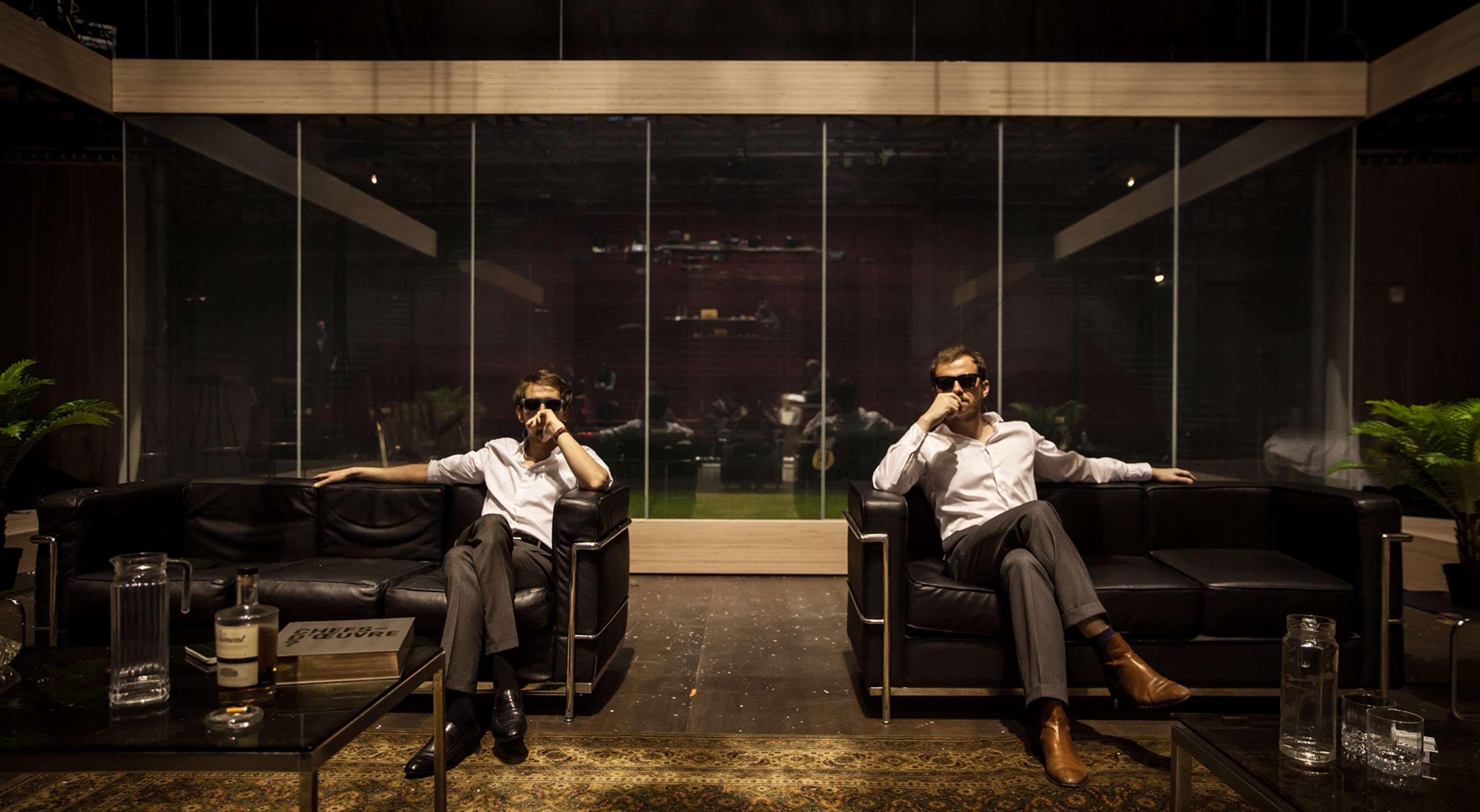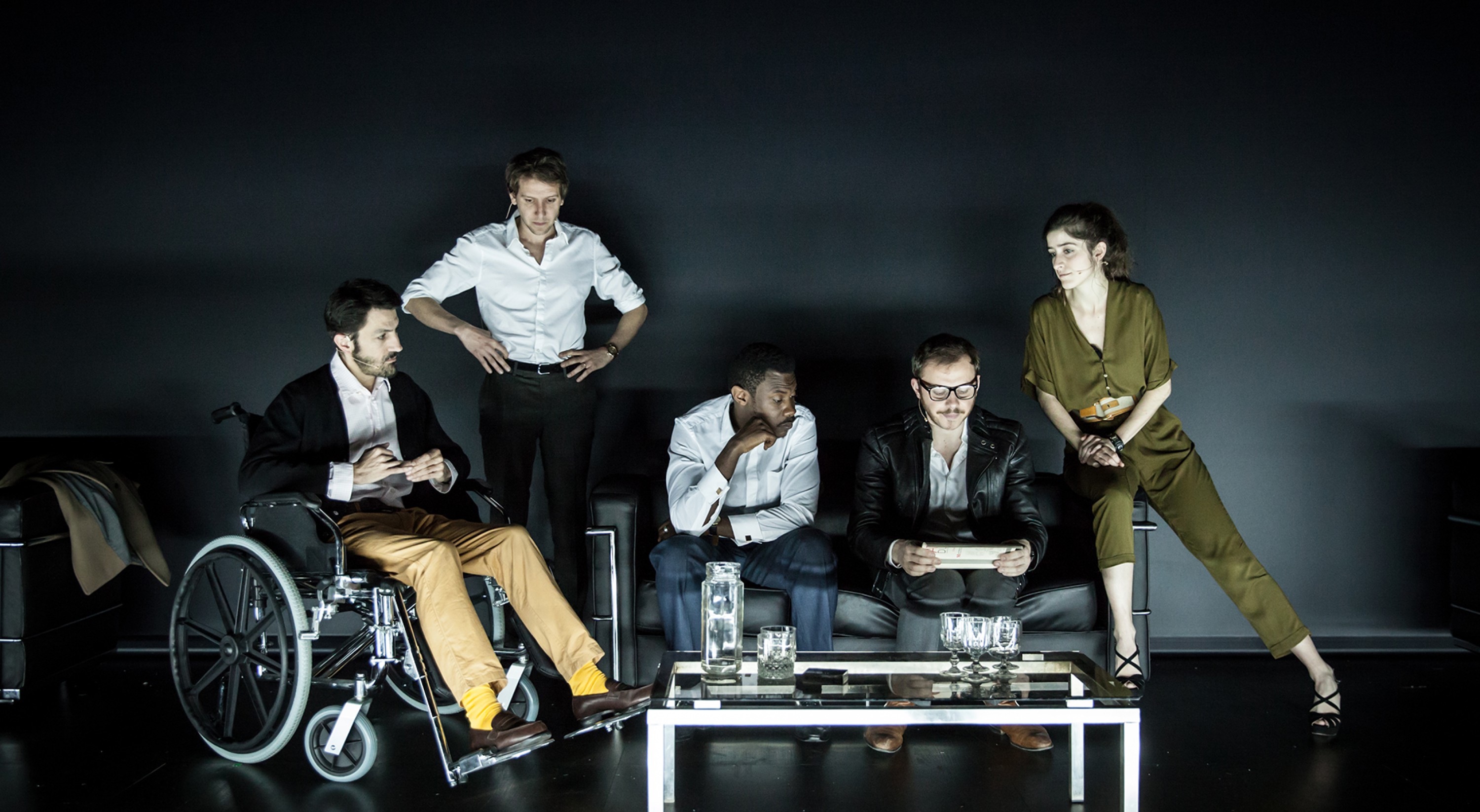Julien Gosselin
2666
based on the work by Roberto Bolaño
septembersept 10 - october – oct 10
Based on 2666 Copyright © 2004, The Heirs of Roberto Bolaño. All rights reserved.
Text published by Bourgois (2008)
Translation, Robert Amutio
Adapted and directed by Julien Gosselin
With Rémi Alexandre, Guillaume Bachelé, Adama Diop, Joseph Drouet, Denis Eyriey, Antoine Ferron, Noémie Gantier, Carine Goron, Alexandre Lecroc-Lecerf, Frédéric Leidgens, Caroline Mounier, Victoria Quesnel, Tiphaine Raffier
Set designer, Hubert Colas assisted by Frédéric Viénot
Musical creation, Guillaume Bachelé, Rémi Alexandre
Lighting designer, Nicolas Joubert
Lighting operators, Nicolas Joubert and Arnaud Godest
Video design and operators, Jérémie Bernaert, Pierre Martin
Sound designer and operator, Julien Feryn
Costume designer, Caroline Tavernier
Assistant costume designer, Angélique Legrand
General stage manager, Antoine Guilloux
Technical support, Julien Boizard
Video support, Mehdi Toutain-Lopez
Onstage sound manager, Mélissa Jouvin
Stage management, Guillaume Lepert
Apprentice assistant director, Kaspar Tainturier-Fink
Apprentice stage manager, Julie Gicquel
A Si vous pouviez lécher mon cœur coproduction ; Le Phénix, Scène Nationale de Valenciennes ; Théâtre National de Strasbourg ; Odéon-Théâtre de l’Europe (Paris) ; Festival d’Avignon ; Théâtre national de Toulouse ; MC2: Grenoble – scène nationale ; Stadsschouwburg Amsterdam ; La Filature, Scène nationale – Mulhouse ; Le Quartz – Scène nationale de Brest
In association with Odéon-Théâtre de l’Europe (Paris) ; Festival d’Automne à Paris
With production aid from Dicréam and SACD Beaumarchais
With support from the Ministère de la Culture et de la Communication (DGCA)
With support from La Friche la Belle de Mai (Marseille), Montévidéo, centre de créations contemporaines (Marseille), Le Grand Sud (Lille)
Set construction at the Théâtre National de Strasbourg workshops
First performed on 18th June 2016 at the Phénix, Scène Nationale de Valenciennes
Presented by the Festival d’Automne à Paris in 2014, the flowing adaptation of Michel Houellebecq’s novel Les Particules élémentaires by the young director Julien Gosselin and his “Si vous pouviez lécher mon coeur” collective was a major event. Proof, then, that this theatrical form, by turns polyphonic and “gut-wrenching”, direct and choral, with its delicious, virtuoso exploration of a whole palette of registers, mediums and sensations, had the ability to tug at the very heartstrings of the audience. The unbridled energy of this gang of wholly polymorphous actors (alternating between musician, performer, character and narrator) all in their early thirties proved to be of a particularly communicative nature. At any rate, the whole experience was a considerable source of comfort for Julien Gosselin and his penchant for book-worlds, the likes of which do not stop at telling us about our present, but which are also “attempts at trying to grapple with several eras, and periods in time”. This is a truly fitting description of 2666, the unfinished novel of the Chilean writer Roberto Bolaño (1953-2003), unanimously considered as one of the first literary masterpieces to come out of the XXIst century. This monumental work spanning more than a thousand pages, the five parts of which were originally meant to be separate volumes, weaves together different periods in time and continents, intrigues and registers, setting up the possibility of multiple stories within a story, digressions and trapdoors. The whole is set to give rise to a monster of a show lasting around twelve hours, which Julien Gosselin wants “to be for the audience exactly what it is for the reader, gigantic, infinite, joyous, and, at times, trying”. We can look forward to an “all-round experience, in which actors and audiences alike journey through the novel, in all its might and complexity”.
In the same place



